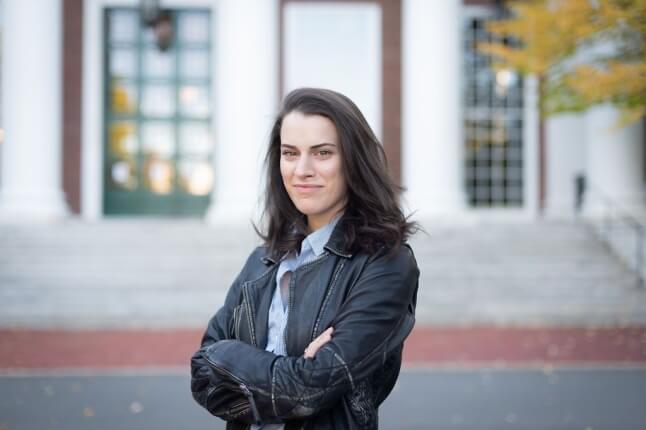News
Will Long launched Numinar to bring cutting-edge file management and data analysis to political campaigns. (Photo provided by Will Long)
After spending a few summers interning at tech companies, Will Long’s deepening interest in political philosophy inspired him to work for local election campaigns.
Having grown accustomed to the sleek and polished software of Silicon Valley, he was unpleasantly surprised by the clunky software tools being used by campaign workers.
“I realized there was a pretty big piece missing. Especially if you drop below the federal level to the state and municipal races, the majority of them don’t use any data over the course of their campaigns,” he said. “It is difficult to win an election if you don’t know who the voters in your district are.”
Long, A.B. ’19, a joint concentrator in government and computer science at the Harvard John A. Paulson School of Engineering and Applied Sciences (SEAS), decided to use his tech skills to fill the gap. He launched a startup, Numinar, to bring cutting-edge file management and data analysis to political campaigns.
After spending months interviewing campaign managers, candidates, and field directors, Long found that campaign software was often developed by political scientists who had learned to code.
“It was nothing a software engineer would ever let see the light of day. It seemed like the software was something that somebody had just hacked together, and when I looked into it, that’s pretty much what happened,” he said. “But with an end-to-end, integrated software solution, there are lots of ways you can have feedback loops going on so your outreach can be informed by the data over the course of the campaign.”
That’s exactly what Numinar does. The software draws on registered voter data, consumer data, and demographic information to predict which candidate a voter is likely to vote for, whether they will turn out to vote, the political issue they are most concerned about, and which way they lean on it.
Long and his co-founders developed algorithms that aggregate relevant data into a district-wide view to help a candidate target outreach. The Numinar dashboard shows a projected vote share for the candidate, an estimate of how many votes they need to win the race, and the time remaining to secure them.
The software also provides a list of potential voters, each with an impact score—a heuristic that draws on voting history, registered party, and other factors to determine the likelihood an individual could be convinced to vote for the candidate. Taking things one step further, the software offers tools to reach voters on that list, through phone calls, email, direct mail, social media advertisements, and even door-to-door visits.
“There is a lot of cool technical stuff going on in the background, but we abstract all of that away from the end user to present concrete, actionable insights,” he said. “One of our primary theses as a company is that leveraging the data and the models out there to the best of your ability will translate into actual electoral differences.”
If there is anything campaign workers learned from the 2016 election, it is that analytics-based solutions are much more accurate than projections based on polls, he said.
One challenge the team faces is ensuring information is kept secure, especially after campaign data breaches that made headlines during the last election cycle. Long draws on his industry experience to deploy the latest data privacy techniques.
“There are ethical concerns related to how data about your physical presence, like your name and address, relates to your online identity, like your Facebook profile and internet search behavior,” he said. “We never let your physical identity touch your online identity, even when we do things like send targeted Facebook ads.”
Another challenge he and his co-founders face is the learning curve. In the vast and varied political landscape, it is difficult to determine the tools that will be most useful for a campaign, Long said. Numinar is currently pilot testing with several campaigns to see how the software can best be incorporated into workflows.
He and his team have relied on advice and support from the community of student founders in Startup R&D (ES 95r), taught by Paul Bottino, Executive Director of Innovation Education, as they fine-tune the software. Numinar won the Public Sector Innovation Award in this year’s i3 Innovation Challenge, sponsored by the Technology and Entrepreneurship Center at Harvard.
Building off that success, Long plans to move to Washington, D.C. to work on Numinar full time after graduation. His goal is to sign-on 250 campaigns for the 2020 election cycle.
“There is definitely a big sense of responsibility in terms of working with campaigns in a principled way, especially in a world where, for candidates, it is very much win at all costs,” he said. “Hopefully we will be able to contribute to the project of American Democracy, not least of which by showing candidates what people in their districts actually care about. I think there is a lot of good that can come out of that.”
Topics: Computer Science, Entrepreneurship
Cutting-edge science delivered direct to your inbox.
Join the Harvard SEAS mailing list.
Press Contact
Adam Zewe | 617-496-5878 | azewe@seas.harvard.edu


